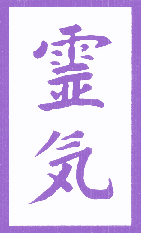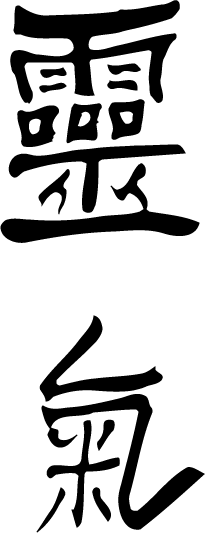
REIKI TRADITIONS AND LINEAGE
To someone new to reiki, the plethora of reiki traditions and the topic of lineage can start one's head spinning. There are so many traditions available to learn from, if learning reiki is what one desires. For someone just wanting a reiki treatment session, the different traditions may have that person wondering if they are receiving the high quality healing treatment s/he deserves. On this page, I am not attempting to list off the various reiki traditions, but wish to discuss the topics of traditions and lineage. How important are tradition and lineage? Why are there so many traditions? What are valid traditions?
Prior to answering the above questions, an understanding of lineage and tradition is important. Merriam-Webster Online Dictionary defines lineage as "1a) descent in a line from a common progenitor; b) derivation; 2) a group of individuals tracing descent from a common ancestor; especially, such a group of persons whose common ancestor is regarded as its founder." In reiki, the "common progenitor" or "common ancestor" or "founder" is Mikao Usui - at least that is as far back as we are able to modernly trace reiki. Usui was the first person to teach reiki in our modern era, and his style of teaching reiki and what he taught is considered to be one tradition of reiki. Tradition defined in the same dictionary above is "1) an inherited, established, or customary pattern of thought, action, or behavior (as a religious practice or a social custom); 2) the handing down of information, beliefs, and customs by word of mouth or by example from one generation to another without written instruction; 3) cultural continuity in social attitudes, customs, and institutions; 4) characteristic manner, method, or style." Since Usui was the first person to teach reiki in our modern era, it seems fairly obvious that many people would prefer to learn, adopt, and use Usui's tradition of reiki. However, as we move further away from Usui in a reiki lineage, it seems natural that different traditions would emerge through the years. This means that only those directly trained by Usui knows what he taught. The only way for anyone else to know what he taught would be to be trained by someone who was trained by Usui, and that, in itself, does not guarantee that what is being taught is "pure". People are very individualistic and invariably add in their own "spice" to a tradition (this is ultimately why there are so many different traditions). As can be seen, lineage and tradition go hand in hand. In order to determine a tradition of reiki, it is often necessary to look at the lineage.
But how important is tradition and lineage? Lineage is likley just as important as tradition, and tradition is likely as important as lineage. One way in which lineage may be important is to make sure that a reiki teacher/practitioner really is teaching and practicing reiki. For example, if that person did not even know of Usui, then it is likely that person isn't teaching or practicing reiki. Thus, a valid reiki tradition is one that uses reiki in its practice and teaching. Another way that lineage is important is that it can be an indicator of reiki tradition. Remember that traditions can be modified or changed along the way, so even if someone can trace his/her lineage back to Usui, that does not mean it is necessarily Usui tradition. Another name in the lineage may indicate the other tradition that emerged. For example, if one's lineage goes back to Usui - Hayashi - Takata, the tradition is likely not Usui tradition, but that of Takata. Ultimately, I think lineage is important so that it can be determined that what is being taught and practiced really is reiki, even if it isn't kept unchanged from Usui. Tradition, however, is important in terms of style and content. People often may disagree with one tradition, but agree with another. In the interest of feeling comfortable with reiki, one should agree with a tradition of reiki. For someone interested in studying and learning reiki, that can be very important. For someone wanting a reiki treatment, that may be important also because the style of treatment may be quite different from one tradition to another. However, that is not to say that the quality of treatment is better or worse in association with a tradition. Reiki is reiki, and it is my opinion that as long as reiki is given with good intent and care, then it is at the very core the same.
LIST OF SOURCES
http://angelreiki.nu/reiki/issues.htm
http://angelreiki.nu/ryoho/
Copyright C.J. Chow November 2004

